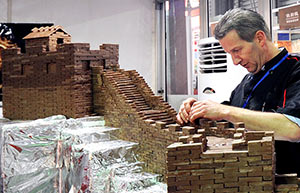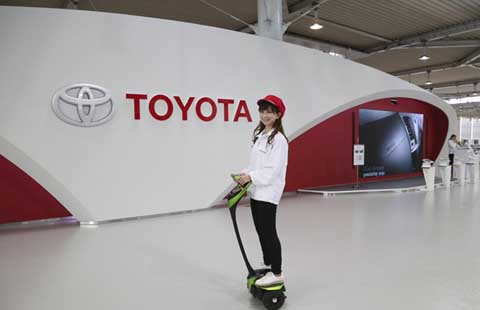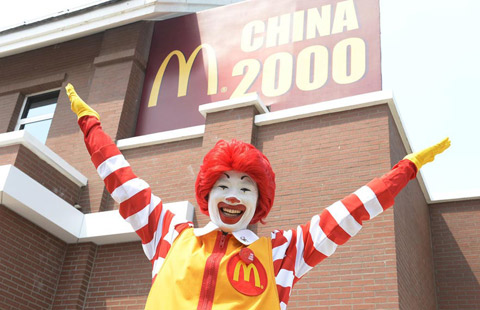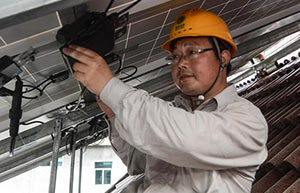High-tech park growing local innovation
By Zhong Nan and Li Yu in Chengdu and Lu Haoting in Beijing (China Daily) Updated: 2014-05-16 09:27"These briefings are quite useful," said Cao. "They help us learn about municipal, provincial and national policies, innovative achievements by successful foreign companies, as well as the supply and demand data of international markets provided by consulting companies."
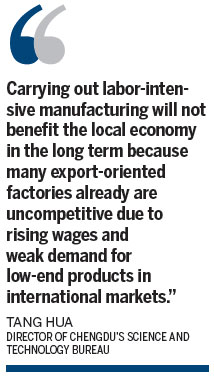 Chengdu Guibao's sales revenue reached 543 million yuan in 2013, up 25 percent year-on-year. It exported 2.8 million yuan worth of products to overseas markets last year.
Chengdu Guibao's sales revenue reached 543 million yuan in 2013, up 25 percent year-on-year. It exported 2.8 million yuan worth of products to overseas markets last year.
Zhang Qizuo, a professor at Chengdu University, said China's national strategy to build the Silk Road economic belt, grow consumption and apply new technologies in western China will help to optimize the city's industrial and human resources structure over the next decade.
"Chengdu is one of a few Chinese cities that combines a large pool of young professionals with a better but less expensive lifestyle that is due to the opportunities presented by the city's fast-growing high-tech industry," Zhang said.
Supported by 57 universities and more than 40 vocational colleges mostly specializing in heavy industry, electronics and automation, chemical and computer science, Chengdu added 250,000 university graduates and 80,000 professionals from vocational colleges to China's labor pool in 2013.
"To tackle the problems of talent shortage and the rising cost of labor, Chengdu's government signed agreements with 20 local universities last year to provide both local and foreign high-tech companies with quality professionals who can work in the city after their graduation," said Tang, from Chengdu's science and technology bureau.
- High-tech park growing local innovation
- China, 'world's factory', lacks skilled workforce
- Protecting environment tops public concerns in poll
- Licenses revoked in anti-porn campaign
- Mobile Internet business booming in China
- New day dawns for labor rights in Pearl River Delta
- NEA: End of the line for small oil refineries
- China-Russia gas deal set to be signed
